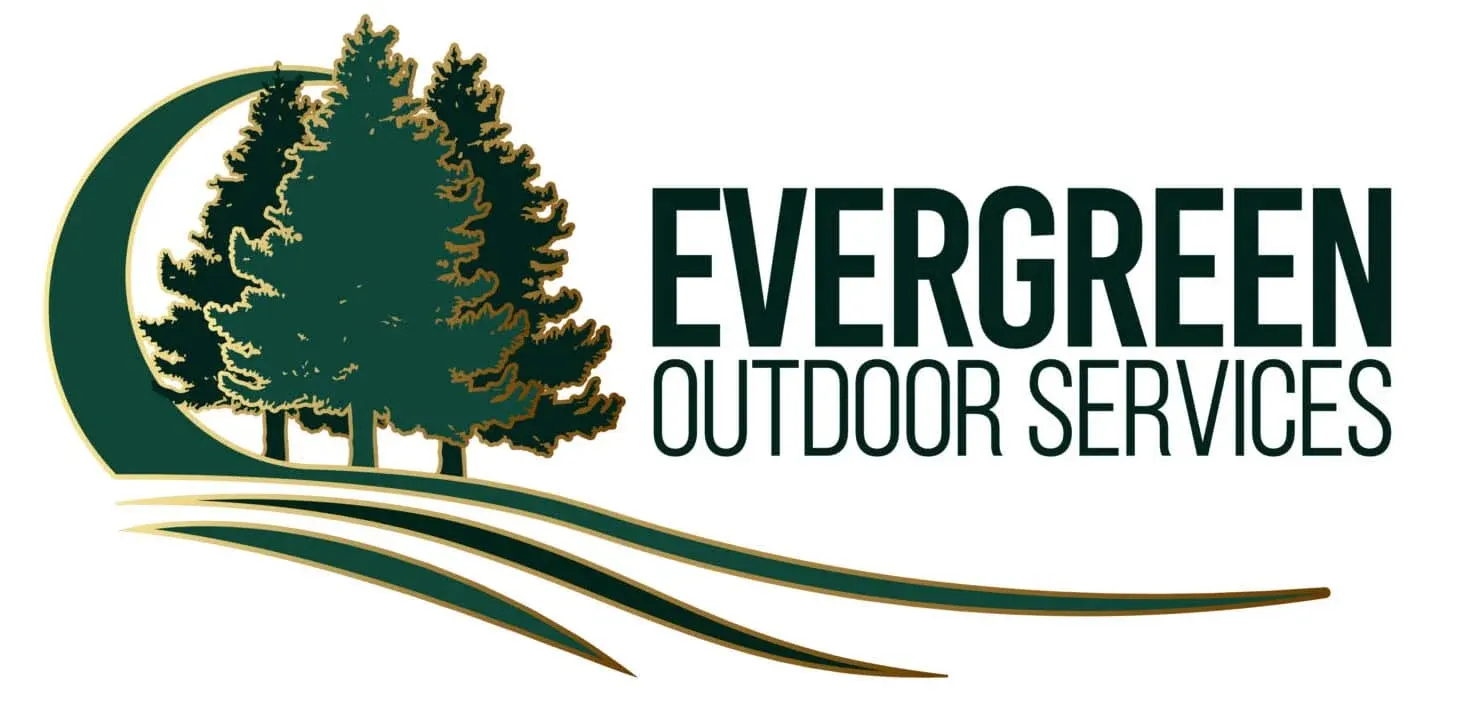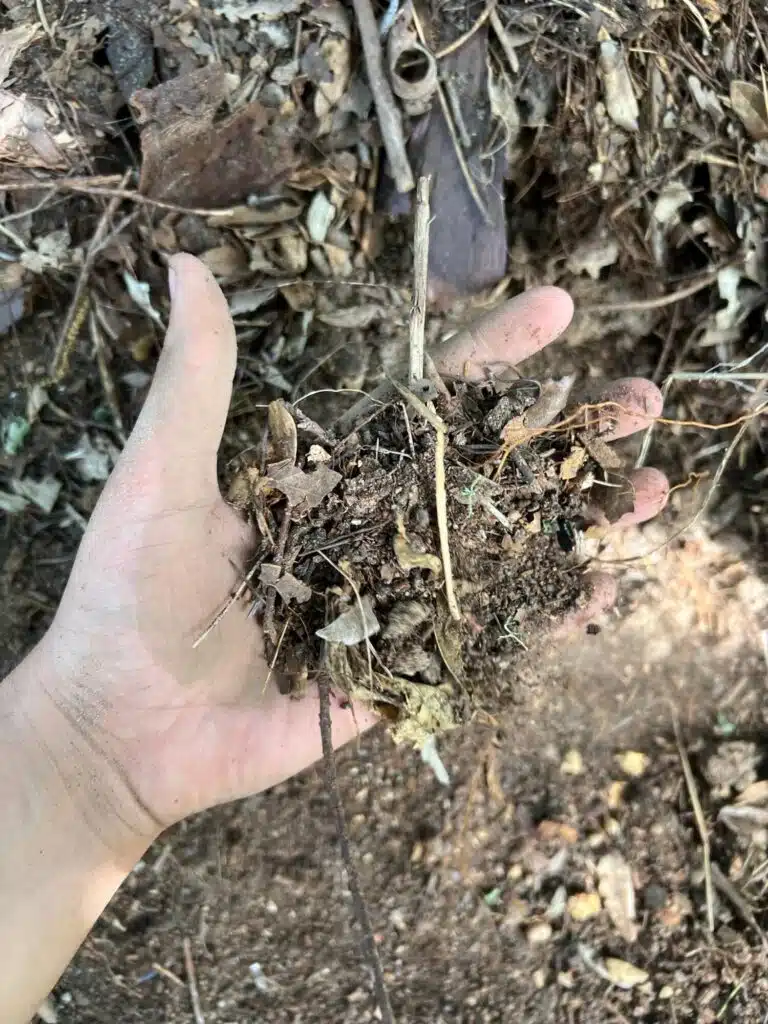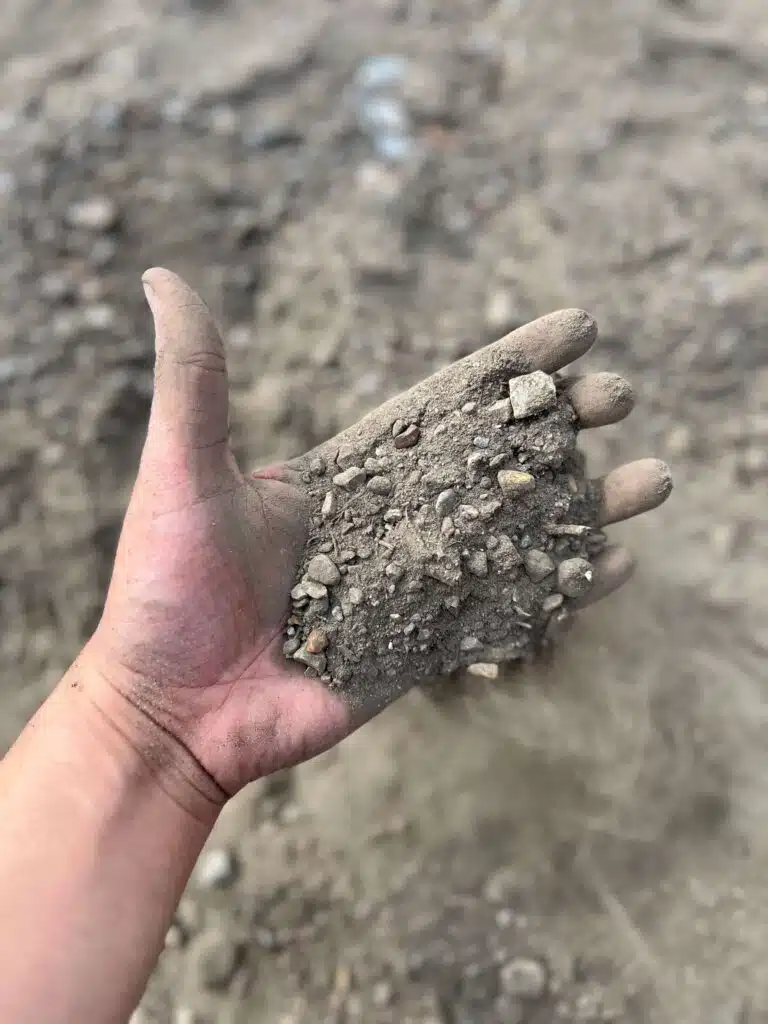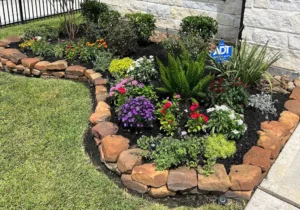When most homeowners picture a beautiful yard, they imagine what they can see — fresh mulch, lush grass, maybe a row of blooming flowers. But the real secret to a healthy, low-maintenance yard is hiding beneath your feet.
It’s called soil biology, and it’s one of the most overlooked parts of landscaping — even though it affects everything from lawn health to garden growth to how often you need to water or fertilize.
What Is Soil Biology (And Why Should You Care)?
When we talk about soil biology, we’re talking about the life beneath your feet. It includes everything from helpful bacteria and fungi to earthworms and tiny bugs you can’t even see. These living organisms form an underground team that quietly works together to keep your soil healthy and your plants happy.
This hidden ecosystem is at the heart of soil health for lawns and gardens, and here’s what it does for your landscape:
-
Turns organic matter into plant food
When leaves, grass clippings, or compost hit the ground, microbes break them down into nutrients your plants can actually use. -
Improves how soil holds together and drains
Healthy soil has the perfect texture—not too loose, not too tight. Soil life helps maintain this balance so water flows properly and roots can breathe. -
Fights off pests and diseases naturally
A rich soil community creates natural protection around plant roots, making it harder for harmful pests and diseases to take hold. -
Holds onto water longer
Good soil doesn’t just drain—it also stores moisture so your lawn or garden stays hydrated between waterings. -
Encourages deep, strong root growth
When your soil is alive and well, roots grow deeper and stronger, helping your plants and grass survive heat, drought, and stress.
In short, living soil equals a thriving yard. Focusing on soil health for lawns and gardens means fewer problems, less maintenance, and better results—naturally.
Signs Your Soil Biology May Be Struggling
If your lawn or garden isn’t thriving—despite your best efforts—the problem might be lurking underground. Poor soil biology can silently sabotage your results. Look out for these telltale signs:
-
Grass stays dull even after fertilizing
-
Water pools or runs off instead of soaking in
-
Shallow, weak roots that can’t anchor plants or absorb nutrients
-
Mulch just sits there, refusing to break down
-
Plants grow slowly or appear stunted despite care
These symptoms often point to compacted soil, chemical overload, or improper watering—all of which can suffocate beneficial microbes and halt healthy growth.
The good news? With the right practices, you can revive your soil and bring your landscape back to life—naturally.
Five Easy Ways to Improve Soil Biology
Healthy soil doesn’t require fancy products or pricey treatments. With the right habits, you can rebuild soil life naturally and set your lawn or garden up for long-term success. Here’s how:
1. Feed It with Organic Matter
Use compost, leaf mold, or aged mulch to enrich your soil naturally. These materials fuel beneficial microbes, improve structure, and build long-term fertility.
2. Go Easy on the Chemicals
Synthetic fertilizers and weed killers might deliver quick results—but they also harm the beneficial microbes your soil depends on. Instead, opt for organic or slow-release alternatives that nourish without disruption.
3. Leave Your Grass Clippings
Skip the bag—let your clippings decompose in place. They return nutrients to the soil, reduce landfill waste, and save you time.
4. Choose Mulch That Matters
Natural mulches like shredded bark or pine straw break down over time, improving soil health. Avoid rubber or dyed mulch—they don’t decompose and provide no biological benefit.
5. Water Deep, Not Often
Frequent shallow watering encourages weak roots. Instead, water twice a week—deeply. This strengthens your lawn and supports thriving microbial life below the surface.
Why Soil Biology Matters for Lawns, Flower Beds, and Gardens
Whether you’re maintaining a lush backyard lawn or cultivating vegetables in raised beds, your success begins underground.
When your soil is alive and well-balanced, it creates the perfect environment for everything above it to flourish. Here’s what strong soil life delivers:
-
Greater lawn resilience – withstands Houston’s heat, drought, and common pests
-
Healthier, more vibrant flowers and vegetables – with fewer disease issues
-
Lower water bills – thanks to better moisture retention and reduced runoff
-
Less maintenance – fewer chemicals, fewer headaches
Soil health isn’t just important—it’s the invisible engine that drives your entire landscape. Get it right, and your yard works for you. Neglect it, and you’re stuck in a cycle of patch-ups and problem-solving.
Frequently Asked Questions | Soil Biology and Lawn Health
How can I improve soil biology naturally?
Start by using compost or organic fertilizers, reducing chemical use, mulching with natural materials, and watering deeply. These changes support the underground life your plants depend on.
Is compost better than fertilizer for my yard?
Compost feeds both your plants and your soil’s biology. It builds long-term fertility, while many synthetic fertilizers only offer short bursts of nutrients with no soil-building benefits.
What’s the difference between healthy soil and rich soil?
Rich soil has nutrients, but healthy soil has life. It contains beneficial microbes, good structure, and the ability to regenerate nutrients naturally.
How do I know if my soil is compacted?
If water runs off, roots stay shallow, or the soil feels hard even after rain, compaction is likely. Aerating and adding organic material can help restore its health.
Can I fix my lawn without using chemicals?
Yes. Organic lawn care practices — like compost topdressing, natural weed suppression, and proper mowing height — can improve lawn health without harsh treatments.
Healthy Soil Starts with Smarter Lawn Care
At Evergreen Outdoor Services, we believe in building stronger landscapes from the roots up. After years of working in Houston neighborhoods like Summerwood and CE King, we’ve seen firsthand that improving soil health for lawns and gardens often solves the whole yard.
Whether you’re a DIY gardener or looking for expert help, we’re here to support your goals with the knowledge and services to make it easy.
Visit our blog and lawn care tips for more insights, or explore our landscaping services to take the next step toward a yard that thrives — above and below the surface.
Evergreen Outdoor Services
(832) 506-8239




